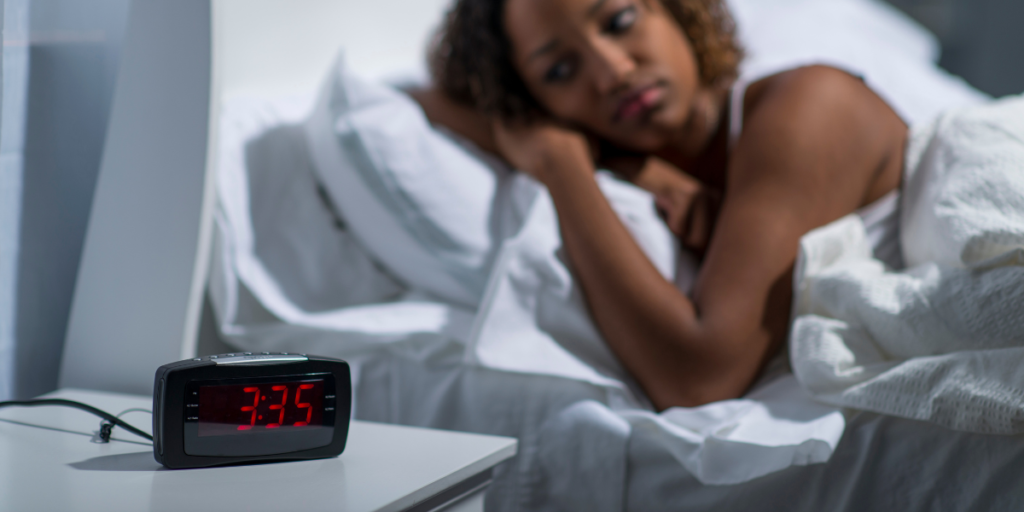Key Takeaways:
- Optimal Timing for Best Results: Learn how timing your melatonin intake can improve your sleep and enhance its effectiveness.
- Factors Impacting Melatonin’s Effectiveness: Explore factors like light exposure, age, and dosage that influence melatonin’s impact on your sleep.
- Common Mistakes to Avoid: Find out common pitfalls people make with melatonin and how to maximize its benefits safely.
Ever find yourself tossing and turning, unable to drift into sleep? For millions, quality rest remains elusive, especially in today’s high-paced world. At Reposé, we’ve developed a solution: our premium, USA-made Melatonin Gummies. These gummies offer a natural, side-effect-free remedy to occasional sleeplessness, combining effectiveness with delicious taste.
Our mission is to make restful sleep accessible to everyone. In this guide, we’ll explore how timing and dosage of melatonin can help you achieve the rejuvenating rest you deserve—naturally and reliably.
Understanding How Melatonin Works In The Body
Melatonin, often called the “sleep hormone,” plays a crucial role in regulating the body’s internal clock, or circadian rhythm. This natural hormone, produced by the pineal gland in response to darkness, signals the body to prepare for rest and promotes overall relaxation. While commonly associated with sleep, melatonin’s influence extends beyond just helping with rest, offering benefits for immune health and antioxidant protection. To fully appreciate melatonin’s role, it’s essential to understand how it works in the body and why it’s considered a natural and preferred sleep aid. Below, we’ll delve into the specific mechanisms and benefits of melatonin to shed light on its unique contributions.
The Role Of Melatonin In Circadian Rhythm Regulation
Melatonin is central to maintaining the circadian rhythm, which dictates sleep and wakefulness patterns based on natural light exposure. The pineal gland increases melatonin production in response to darkness, signaling to the brain that it’s time for rest. This release aligns the body’s internal clock with environmental cues, making it easier to fall asleep and wake up at regular intervals.
Inducing Drowsiness And Lowering Core Body Temperature
As melatonin levels rise in the evening, they bring about physiological changes that aid in sleep readiness. This includes inducing feelings of drowsiness and lowering the body’s core temperature, both of which contribute to a more restful state. These effects create a cascade of relaxation responses in the body, preparing it for a natural progression into sleep.
Melatonin As A Natural Antioxidant
Beyond its sleep-regulating abilities, melatonin serves as a natural antioxidant, protecting cells from oxidative stress and potential damage. This antioxidant action supports cellular health, helping to neutralize free radicals that can accumulate due to environmental stressors. This added benefit enhances melatonin’s role in overall wellness, particularly as we age.
Supporting Immune Function With Melatonin
Melatonin also plays a part in regulating immune responses, contributing to its reputation as a multifaceted hormone. It helps modulate immune cell activity, enhancing the body’s ability to defend against infections and inflammation. This immune support is especially valuable in maintaining balance, as optimal sleep and immune health are closely connected.
Melatonin Supplements Vs. Traditional Sleep Aids
Unlike conventional sleep medications that induce immediate sedation, melatonin supplements work by supporting the body’s natural sleep signals. This difference makes melatonin a gentle and effective option for people seeking a natural sleep aid. By enhancing, rather than forcing, sleep mechanisms, melatonin avoids many of the side effects associated with traditional sleep aids.
Determining The Optimal Timing For Melatonin Intake
Timing is essential for melatonin to be most effective. Generally, taking melatonin supplements about 30 to 60 minutes before bedtime aligns with the body’s natural melatonin surge. This approach allows melatonin levels to rise gradually, fostering a smooth transition into sleep without abrupt interruptions to the natural circadian rhythm.
Unlock restful nights with Reposé Melatonin Gummies! Naturally boost your sleep routine with our delicious, effective formula. Try Reposé today for better sleep.
Ideal Timing For Taking Melatonin
Understanding the ideal timing for melatonin intake can significantly enhance its effectiveness as a natural sleep aid. Melatonin works best when taken at specific intervals that align with the body’s internal clock, maximizing its ability to induce drowsiness and promote restorative sleep. The timing varies slightly depending on individual sleep patterns, lifestyles, and specific challenges such as shift work or jet lag. Below, we explore the most effective timing strategies for taking melatonin based on different scenarios and needs.
Standard Timing: 30 To 60 Minutes Before Bedtime
For the average person, taking melatonin 30 to 60 minutes before bedtime allows the body to absorb the supplement and experience its effects gradually. This timing syncs with the body’s natural melatonin release, helping to create a smooth transition from wakefulness to sleep. As a result, individuals experience a gentler onset of drowsiness, supporting a more natural and restful sleep.
Timing For Shift Workers
Shift workers, whose schedules may disrupt their circadian rhythm, can benefit from specific melatonin timing. Those working night shifts, for example, might take melatonin in the early morning when they need to rest. By using melatonin strategically, shift workers can better align their sleep-wake cycle with their work schedule, improving sleep quality despite atypical hours.
Timing For Jet Lag
For travelers facing jet lag, timing melatonin intake according to the new time zone can help the body adjust. Ideally, individuals should start taking melatonin in the evening of their destination’s time zone, beginning a few days before departure. This preemptive approach helps the body adapt to time zone changes more quickly, reducing the disruptive effects of jet lag on sleep.
Gradual Dosing For Adjusting Sleep Patterns
For those aiming to shift their sleep schedule or address delayed sleep phase syndrome, gradual melatonin dosing can be effective. Taking melatonin slightly earlier each evening allows for a slow adjustment, helping to reset the body’s internal clock over time. This gradual approach is ideal for establishing a consistent sleep pattern and avoiding abrupt shifts.
Avoiding Melatonin During Early Evening
Taking melatonin too early in the evening may disrupt the body’s natural rhythm and lead to grogginess or an interrupted sleep cycle. Early evening doses can cause a mismatch in timing, diminishing melatonin’s effectiveness. For optimal results, it’s crucial to time melatonin intake closer to the desired bedtime, allowing it to complement rather than interfere with the body’s own melatonin production.
Factors That Affect Melatonin Timing
Several factors can influence the ideal timing for taking melatonin, including age, individual lifestyle, and specific sleep challenges. Here are some key considerations:
- Age: As we age, natural melatonin production often decreases, and older adults may need to adjust their timing. Research suggests that older individuals may benefit from taking melatonin a bit earlier in the evening for optimal results.
- Light Exposure: Exposure to artificial light, especially blue light from screens, can delay melatonin release in the body. Avoiding screens or using blue-light-blocking glasses an hour or two before bed can enhance melatonin’s effect when taken as a supplement.
- Diet and Lifestyle: Certain foods like tart cherries and walnuts contain small amounts of melatonin, and a diet rich in sleep-promoting nutrients like magnesium can support melatonin’s effects. Stress levels, exercise habits, and caffeine intake also play a role in melatonin timing.
- Underlying Health Conditions: Conditions like insomnia, delayed sleep phase syndrome, and anxiety may require careful consideration of when and how much melatonin to take. Consulting with a healthcare provider can help customize timing and dosage for specific needs.
By factoring in these elements, you can better tailor melatonin use to fit your unique lifestyle and sleep goals.
Recommended Dosage For Different Age Groups
Determining the appropriate melatonin dosage is essential for optimizing its effects and ensuring safe use across different age groups. The correct dosage can vary significantly depending on factors like age, individual sensitivity, and specific sleep-related challenges. Starting with a low dose is generally recommended, as melatonin supplements can be potent even in small amounts. Here, we explore recommended dosages for various age groups and special circumstances to provide a comprehensive guide.
Melatonin Dosage For Children And Adolescents
For children, particularly those with conditions like ADHD or autism that can disrupt sleep, melatonin can be a useful aid under medical guidance. Young children typically respond well to doses ranging from 0.5 to 1 mg, while older children and teenagers may find 1 to 3 mg effective. As children are more sensitive to melatonin, consulting a healthcare provider is crucial before introducing the supplement to ensure it supports their specific sleep needs safely.
Standard Dosage For Adults
Adults often start with a dose between 1 and 3 mg, taken about 30 minutes to an hour before bedtime to allow the body ample time to absorb the hormone. Some adults may require only 0.5 mg to experience beneficial effects, while others might find a dose up to 5 mg helpful, depending on their sensitivity and sleep challenges. Beginning with the lowest effective dose minimizes potential side effects, providing a balanced approach to improving sleep.
Melatonin Dosage For Older Adults
As melatonin levels naturally decline with age, seniors may find smaller doses, between 0.5 and 2 mg, sufficient for promoting sleep. Taking melatonin slightly earlier in the evening can enhance its effects, helping to synchronize with the body’s changing sleep cycle in older age. This lower dosage is often enough to support restful sleep while reducing the risk of morning grogginess or other side effects.
Adjusting Dosage For Special Circumstances
In unique situations, such as managing jet lag or adapting to shift work, melatonin doses between 0.5 and 5 mg are commonly used. The timing of these doses is tailored to the individual’s needs, with doses administered based on the target sleep schedule in the new time zone or after night shifts. This flexibility allows melatonin to support the body’s natural rhythm in adjusting to temporary disruptions.
The Importance Of Starting Low And Adjusting Gradually
Regardless of age or specific sleep concerns, starting with a low melatonin dose and increasing only as needed can prevent unnecessary side effects. Since each person’s response to melatonin can vary, this cautious approach ensures that the dose is appropriate without overwhelming the body. Consulting a healthcare provider is also recommended for personalized advice, particularly for those with existing health conditions.
Common Mistakes To Avoid When Taking Melatonin
While melatonin can be a helpful sleep aid, certain common mistakes can reduce its effectiveness or even lead to unwanted side effects. Here are some pitfalls to avoid:
- Taking Too High a Dose: Many people assume that a higher dose will be more effective, but melatonin is typically most effective in small doses. High doses can lead to grogginess the next day and may disrupt the body’s natural hormone balance over time.
- Inconsistent Timing: Melatonin works best when taken at the same time each night, aligning with your body’s circadian rhythm. Taking it at different times can confuse your internal clock, leading to inconsistent sleep quality.
- Using Melatonin as a Long-Term Solution: Melatonin is generally recommended for short-term use, such as for managing jet lag or adjusting to a new sleep schedule. Long-term reliance on melatonin can reduce its effectiveness and may prevent you from developing sustainable, natural sleep habits.
- Not Adjusting for Light Exposure: Artificial light exposure, especially from screens, can hinder melatonin’s effects. It’s important to reduce screen time and dim lights an hour or two before bed to allow melatonin to work optimally.
- Ignoring Other Sleep Hygiene Practices: Melatonin should be part of a broader approach to sleep hygiene, which includes maintaining a consistent sleep schedule, creating a relaxing bedtime routine, and ensuring a comfortable sleep environment.
By avoiding these common mistakes, you can improve the effectiveness of melatonin and enhance your overall sleep quality.
Final Thoughts
Melatonin can be a helpful aid for improving sleep quality when used with proper timing, dosage, and an understanding of individual needs. By aligning melatonin intake with the body’s natural rhythm, individuals can enhance its effectiveness, experiencing smoother transitions into sleep without significant side effects. However, melatonin works best as a supplement to—not a substitute for—healthy sleep habits, which are essential for lasting improvements in sleep quality.
Incorporating melatonin into a routine that includes good sleep hygiene, such as a regular sleep schedule, a calming pre-bedtime routine, and limiting screen exposure before bed, maximizes its benefits. For those with chronic sleep issues, consulting a healthcare provider can provide personalized guidance and help evaluate if melatonin is the right option. Used mindfully, melatonin can support natural sleep patterns, making it easier to wake up feeling refreshed and well-rested.
Read also:
- The Ideal Facial Toner for Managing Oily Skin
- Why a Heated Eye Mask Is Your Best Bet for Combatting Dry Eyes
- Eye Masks for Puffy Eyes: Solutions for a Brighter, Fresher Look
Frequently Asked Questions About Taking Melatonin
What is melatonin, and is it safe for regular use?
Melatonin is a natural hormone that regulates sleep-wake cycles. It’s generally safe for short-term use, but consult a doctor for long-term use, especially if you have any health conditions.
Can melatonin help with sleep disorders like insomnia?
Melatonin can help with insomnia, especially if the issue is related to a disrupted circadian rhythm. However, it’s best used for occasional sleeplessness, not chronic insomnia, which may require a broader approach.
Do melatonin gummies have the same effect as melatonin pills?
Yes, melatonin gummies and pills generally offer the same effect. Gummies, however, are often preferred for their taste and ease of consumption.
How does melatonin interact with other natural sleep aids?
Melatonin can be taken alongside natural sleep aids like valerian root or magnesium, but it’s best to consult with a healthcare provider to ensure safety and optimal dosage.
How quickly does melatonin start working after taking it?
Most people feel the effects of melatonin within 30 to 60 minutes, but this can vary based on individual factors like metabolism and dosage.
Can melatonin affect my natural hormone balance?
When taken in appropriate doses, melatonin typically doesn’t disrupt hormone balance. However, long-term use or high doses could potentially impact hormonal levels.
Is melatonin effective for night-shift workers?
Yes, melatonin can help night-shift workers reset their sleep schedules by promoting sleep during daylight hours, but careful timing is essential.
Are there any foods that naturally increase melatonin levels?
Yes, foods like cherries, walnuts, and tomatoes contain small amounts of melatonin and can support the body’s natural production of the hormone.
Is there an ideal bedtime routine to follow with melatonin?
A consistent bedtime routine, such as dimming lights, avoiding screens, and relaxing activities, can enhance melatonin’s effects and improve sleep quality.
Can melatonin help with jet lag, and how should I take it for this purpose?
Melatonin can alleviate jet lag by helping your body adjust to a new time zone. Take it in the evening of your destination’s time zone for the best effect.
Sources:
- Andersen, L. P. H., Gögenur, I., Rosenberg, J., & Reiter, R. J. (2016). The Safety of Melatonin in Humans. Clinical Drug Investigation, 36(3), 169–175. https://doi.org/10.1007/s40261-015-0368-5
- Sack, R. L., Lewy, A. J., & Hughes, R. J. (1998). Use of melatonin for sleep and circadian rhythm disorders. Annals of Medicine, 30(1), 115–121. https://doi.org/10.3109/07853899808999393
- Kuehn, B. M. (2022). Climbing Melatonin Use for Insomnia Raises Safety Concerns. JAMA, 328(7), 605. https://doi.org/10.1001/jama.2022.11506










